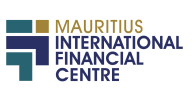by lauren lulu taylor (https://unsplash.com/@laurenlulutaylor)
An overseas trust, also known as an offshore trust, is a trust established under the legal framework of a foreign jurisdiction. The settlor, or creator of the trust, transfers ownership of certain assets to the trust, which are then managed by a trustee for the benefit of named beneficiaries. Often, these trusts are domiciled in countries with favorable legal environments for privacy, asset protection, and tax planning.
These jurisdictions, such as the Cayman Islands or the British Virgin Islands, in addition to Mauritius or Jersey, are carefully selected for their stable political climates, sophisticated legal systems, and modern financial services infrastructure. By placing assets in these trusts, individuals can legally navigate the complexities of international law and taxation.
Why Set Up an Overseas Trust?
Asset Protection
by Paolo D’Andrea (https://unsplash.com/@pawelmc)
Asset protection is a principal motive for establishing an overseas trust. Jurisdictions that cater to offshore trusts tend to have robust legal frameworks that shield assets from creditors, legal judgments, or other financial risks. These protections are particularly attractive to high-net-worth individuals, corporate executives, and professionals in litigious fields such as medicine or finance.
For instance, a real estate developer facing a volatile market at home may find solace in knowing that the assets held in an overseas trust are less vulnerable to domestic economic swings. Furthermore, such protections are not only useful in extreme scenarios like bankruptcy but also in maintaining business continuity and legacy planning.
Tax Planning
by Isaac Smith (https://unsplash.com/@isaacmsmith)
Another cornerstone of overseas trusts is tax efficiency. Many offshore jurisdictions have tax-neutral environments, meaning that trusts established there may be exempt from local taxes on income and capital gains, provided that the beneficiaries are not residents of that jurisdiction. This can result in considerable tax savings, particularly for those facing high tax rates in their home countries.
Take, for example, a tech entrepreneur who anticipates substantial capital gains from the sale of a company. By placing the ownership of the company within an overseas trust prior to the sale, the individual may significantly reduce the tax liability that would otherwise arise from such a transaction.
Privacy and Confidentiality
by Sue Winston (https://unsplash.com/@winniepix)
The confidentiality afforded by offshore trusts is another compelling feature for many. In a world where financial privacy is eroding, the ability to lawfully maintain anonymity over personal affairs is increasingly valued. Certain jurisdictions do not require the public disclosure of trust documents, thereby keeping the settlor and beneficiaries’ identities confidential.
This privacy extends beyond shielding assets from public view; it can also provide strategic advantages in business, preventing competitors from gaining insights into one’s financial strategies or asset distribution plans.
Types of Overseas Trusts
Fixed Trusts
by Kelly Sikkema (https://unsplash.com/@kellysikkema)
Fixed trusts are characterized by the precise stipulation of beneficiary entitlements. Each beneficiary’s share of the trust’s income and assets is determined at the trust’s inception, offering clarity and predictability. This arrangement is often used to ensure that assets are passed down to heirs according to the settlor’s exact wishes, thereby avoiding disputes and ensuring financial stability for future generations.
In addition to estate planning, fixed trusts can serve as a cornerstone for philanthropic endeavors, allowing benefactors to lay down clear guidelines for how their wealth should be used to advance charitable causes.
Discretionary Trusts
by Jonny Gios (https://unsplash.com/@supergios)
With discretionary trusts, trustees are granted the authority to decide how trust income and assets should be allocated among beneficiaries. This flexibility is particularly useful when dealing with beneficiaries whose future needs may be unpredictable or when the settlor wishes to retain a degree of control over the trust’s operation, even post-establishment.
For business owners, discretionary trusts can serve as a means to protect company assets while also allowing for dynamic decision-making in response to changing market conditions or family circumstances.
Protective Trusts
by Diana Polekhina (https://unsplash.com/@diana_pole)
Protective trusts serve as a safeguard for beneficiaries who may not be in a position to manage assets themselves, such as minors or individuals with special needs. These trusts ensure that the beneficiary’s financial needs are met without exposing the assets to potential risks that could arise from the beneficiary’s inexperience or incapacity.
In creating a protective trust, the settlor can stipulate conditions under which the beneficiary will receive benefits, thus providing both support and incentives for the beneficiary’s personal development or well-being.
Charitable Trusts
by Nick Gordon (https://unsplash.com/@nick_g_pics)
Charitable trusts are established with the explicit purpose of supporting philanthropic activities. Settlors can designate specific charities or causes to benefit from the trust, often resulting in a lasting legacy that reflects their personal values and commitments. These trusts can also offer tax advantages, as many jurisdictions provide tax relief for charitable giving.
Furthermore, charitable trusts can be structured to provide ongoing support over an extended period, ensuring that the settlor’s philanthropic impact endures well beyond their lifetime.
Setting Up an Overseas Trust
The intricacies involved in establishing an overseas trust necessitate a thorough understanding of both the legal landscape of the chosen jurisdiction and the strategic objectives of the trust. Identifying the right professionals to assist in the formation of the trust is critical, as they will help navigate the complexities and tailor the trust structure to the settlor’s unique situation.
It is also vital to remain compliant with international regulations, such as the Common Reporting Standard (CRS) and the Foreign Account Tax Compliance Act (FATCA), which mandate the disclosure of financial assets to combat tax evasion. Professional advisors can ensure that the trust operates within the bounds of these regulations while still achieving the desired benefits.
Common Misconceptions about Overseas Trusts
Overseas Trusts are Illegal
by Avel Chuklanov (https://unsplash.com/@chuklanov)
The narrative that overseas trusts are inherently illicit is a misrepresentation of their legitimate uses. While abuses do occur, the majority of overseas trusts are established for lawful purposes such as asset protection, estate planning, and tax optimization. It is the responsibility of the settlor and their advisors to ensure that the trust complies with all applicable laws and regulations.
Properly structured and managed, an overseas trust is a completely legal tool that can be a cornerstone of a sophisticated wealth management strategy.
Overseas Trusts are Only for the Wealthy
by Katie Harp (https://unsplash.com/@kharp)
Although there is a perception that overseas trusts are the exclusive domain of the ultra-wealthy, they can be beneficial for a broad range of individuals with varying levels of assets. Professionals, entrepreneurs, and even retirees may find that an overseas trust aligns with their financial goals, such as securing retirement funds or providing for a child’s education.
The key is not the amount of wealth but the nature of the assets and the objectives of the trust that determine its suitability.
Overseas Trusts are Complicated and Expensive
by John Cameron (https://unsplash.com/@john_cameron)
While setting up an overseas trust involves navigating complex legal terrain, it need not be an insurmountable challenge. With experienced advisors, the process can be demystified and managed efficiently. Costs vary depending on the jurisdiction and complexity of the trust but are often justified by the benefits in terms of asset protection, tax savings, and privacy.
Moreover, the ongoing management of the trust can be streamlined through professional trustees who are adept at handling the operational aspects, allowing settlors to focus on their broader financial objectives.
Conclusion
by Alexander Schimmeck (https://unsplash.com/@alschim)
An overseas trust can serve as a linchpin in an individual’s or a business’s comprehensive financial strategy. By offering asset protection, tax efficiency, and confidentiality, it caters to a diverse array of needs and can be adapted to various circumstances. Partnering with seasoned professionals is paramount to harnessing the full potential of an overseas trust. With astute planning and execution, an overseas trust can be an invaluable asset in achieving long-term financial security and legacy planning.




























